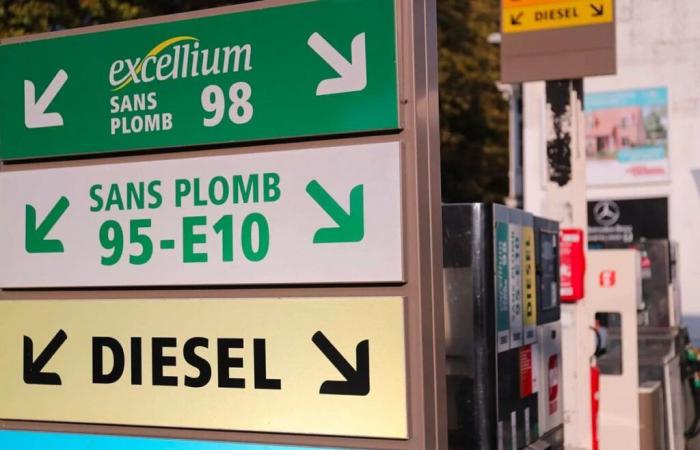The fuel market is currently experiencing a period of turbulence, with significant increase in the price of diesel. According to data published by the Ministry of Ecological Transition, diesel recorded an increase of 0.6 euro cents over the week of November 8 to 15, 2024. This increase brings the average price of a liter to 1,6251 eurosa level that had not been reached since last August.
This increase is part of a broader trend, since it is the third consecutive week of increase for diesel. Although less significant than the previous week (+2 cents), this new increase confirms the upward pressure on diesel prices.
On the other hand, gasoline experiences a different evolution:
- The SP95-E10 shows a slight decrease of 0.2 cents, standing at €1.7054/L
- The SP95 goes from 1.7509 €/L to 1.7495 €/L
- SP98 remains almost stable at 1.8093 €/L
Causes and consequences of the rise in diesel
Several factors explain this increase in the price of diesel. Geopolitical tensions, OPEC+ decisions regarding oil production, and ever-changing global demand play a determining role. Paradoxically, the price of a barrel of Brent, the benchmark for the oil market, was falling over the same period, falling to $73.
This situation has significant repercussions for French motorists:
- Increase in household fuel budget
- Potential impact on consumers’ vehicle choices
- Risk of inflation on everyday consumer products
Road transport professionals are particularly affected by this increase, which could have an impact on the prices of transported goods.
Perspectives and adaptation strategies
Faced with this situation, motorists and businesses must adapt. Several strategies can be considered:
| Strategy | Benefits | Disadvantages |
|---|---|---|
| Carpooling | Cost reduction, ecology | Loss of flexibility |
| Electric vehicles | Long-term savings, ecology | High initial cost |
| Travel optimization | Immediate reduction in expenses | Change of habits necessary |
Public authorities could also intervene to mitigate the impact of these increases on the purchasing power of the French. Measures such as fuel checks or temporary tax reductions have already been put in place in the past and could be reactivated.
Future price developments remain uncertain. If the current trend continues, motorists should expect further increases in the coming weeks. On the other hand, volatility in the oil market could also lead to rapid declines, as was observed after the October peak.
Alternatives and innovations in the automotive sector
This situation reinforces the interest in alternatives au diesel. Car manufacturers are investing heavily in the development of electric and hybrid vehicles. Brands like Renault, Peugeot and Volkswagen now offer a wide range of electrified models.
Hydrogen also presents itself as a solution for the future, with pilot projects carried out by companies like Air Liquide or Total. These innovations could ultimately reduce consumer dependence on fluctuations in fossil fuel prices.
While waiting for prices to stabilize or the mass adoption of these new technologies, motorists must remain vigilant and adapt their consumption habits. Comparing prices between service stations, using dedicated applications and driving economically remain effective ways of limiting the impact of these increases on household budgets.
https://www.ecologie.gouv.fr/politiques-publiques/prix-produits-petroliers






